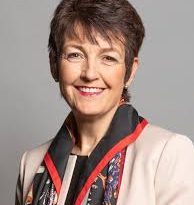Henry Smith – 2016 Parliamentary Question to the Department for Education
The below Parliamentary question was asked by Henry Smith on 2016-01-14.
To ask the Secretary of State for Education, what steps her Department is taking to keep children safe on the internet at school and at home; and if she will make a statement.
Edward Timpson
Schools, internet providers and parents all have a role to play in keeping children safe online.
When carrying out their duties to safeguard and promote the welfare of children, all schools and colleges must have regard to the statutory guidance, Keeping children safe in education, which was launched in December 2015. The guidance makes clear that school staff have a responsibility to provide children a safe environment in which they can learn. The guidance also sets out that schools should consider how children are taught about safeguarding, including online safeguarding, through teaching and learning opportunities, as part of a broad and balanced curriculum. We are currently consulting on further strengthening the online safety requirement for schools, to require all schools to have appropriate filters and monitoring systems in place with regards to the schools IT system.
Every school is required by law to have a behaviour policy with measures in place to prevent all forms of bullying, including cyberbullying. We have produced advice for schools on tackling bullying and advice for parents on how to prevent their child from being cyberbullied, as well as how to spot signs that they have been targeted and what steps to take. We are providing £1.3m in 2015-16 to anti-bullying charities to tackle all forms of bullying.
The Government Equalities Office is funding the UK Safer Internet Centre to produce advice for schools on how to keep children safe online. This advice will be available in the spring of 2016.
E-safety has been a statutory requirement within the new computing programme of study since September 2014. The introduction of e-safety content in key stages 1 and 2 reflects the fact that children are increasingly accessing the internet from a young age, and is intended to inform pupils of good practice in staying safe online from an early age.
The Government has encouraged Internet Service Providers (ISPs) to provide parents with the ability to easily filter content in the home. The four major ISPs, BT, Sky, TalkTalk and Virgin Media, which together constitute an estimated 90% of the UK’s broadband market, have delivered on their commitment to provide an unavoidable choice on whether to install family friendly network level filters to their customers.
We expect social media companies to have robust processes in place to address inappropriate and abusive content on their sites. This includes having clear reporting channels, acting promptly to assess reports, and removing content which does not comply with their acceptable use policies or terms and conditions. Social media can also help signpost vulnerable users to helpful sources of information and support.
Increasingly, children as well as adults access the internet through mobile phones and other mobile devices. The main Mobile Network Operators, EE, O2, Vodafone and Three, which between them cover around 85% of the UK’s mobile connections, all automatically filter age-inappropriate material by default. They have robust processes in place for verifying the age of those seeking to remove the filters.


